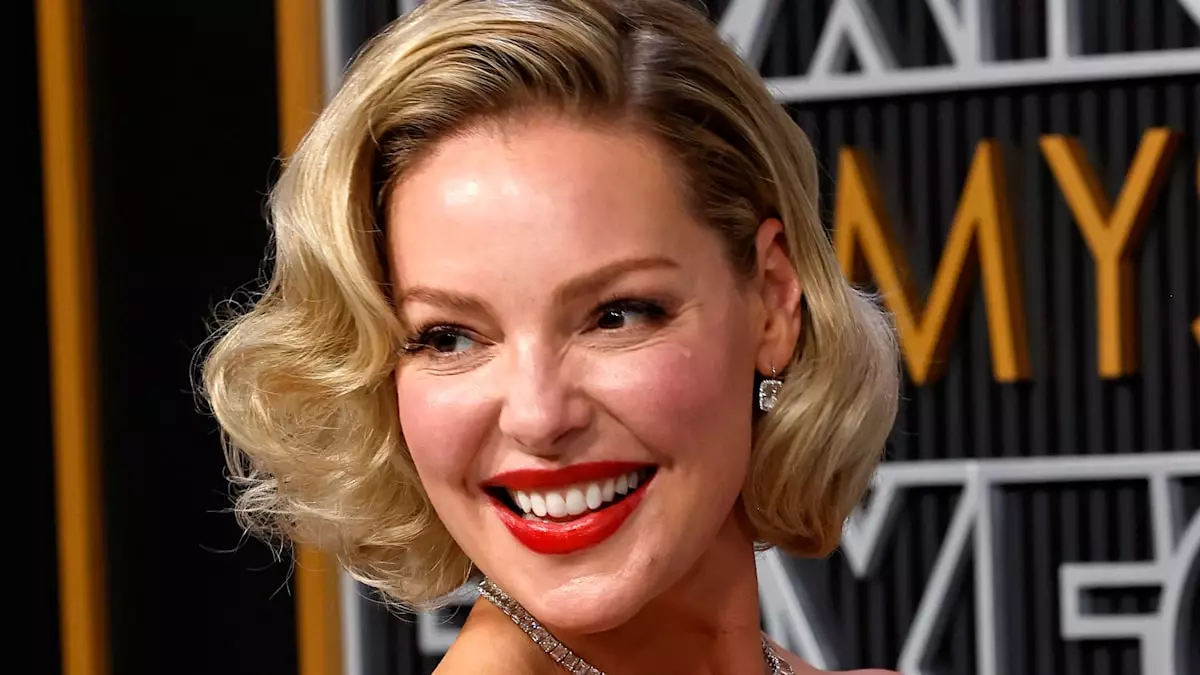Katherine Heigl, renowned for her iconic portrayals in shows like *Grey’s Anatomy* and movies like *27 Dresses*, is stepping into the spotlight once again—not for a film or television role, but to shed light on a crucial health issue that many women encounter but seldom discuss: light bladder leakage during perimenopause. Working with the bladder leak pads brand Poise, Heigl is spearheading the relatable “giggle dribble” campaign, aiming to redefine how women perceive and talk about this experience. In focusing on humor instead of shame, she’s helping to normalize what is a shared struggle for millions—a much-needed conversation in a society that often stigmatizes such topics.
The “giggle dribble” refers to the unintentional release of urine, often exacerbated by factors like childbirth, aging, or hormonal shifts associated with perimenopause. Heigl captures this phenomenon in a lighthearted campaign, portraying a relatable brunch scene where an innocent chuckle leads to her friend experiencing a giggle dribble. What could have been an embarrassing situation is transformed as Heigl weaves in valuable insights about the causes of this issue, gravitationally linking it to changes in hormonal levels post-pregnancy and during perimenopause. By providing her friend with a Poise liner and articulating her knowledge on the matter, Heigl not only educates but also invites a necessary dialogue about a condition that many women too often endure in silence.
During an interview with *People*, Heigl reflects on the challenges she faced while navigating her own perimenopause journey, shedding light on a deficiency in supportive resources from medical professionals. She articulates frustration with the dismissive nature of common responses that suggest, “Oh, this is just what it is to get older.” Heigl’s candid remarks sound an alarm: the journey through perimenopause can feel isolating and bewildering, separating women from their once-familiar bodies. By acknowledging these feelings, she encourages other women to open up and find solace in their friendships, transforming a lonely experience into one of mutual support.
Heigl’s bravery in discussing her bladder leakage experiences post-childbirth shows tremendous potential in changing societal perceptions. Instead of viewing incidents of leakage with embarrassment, she encourages a more accepting attitude—one that embraces these moments with laughter rather than shame. Reflecting on a humorous exchange with her sister, she underscores that this journey is ongoing: “It could be 10 years, so you’re just going to suck it up.” This encapsulates a larger philosophy: that shared challenges should not remain shrouded in stigma but rather celebrated as part of the human experience.
The struggles Heigl experiences—mood swings, fatigue, and cognitive fog—are common aspects of perimenopause that many women face yet often overlook or suppress. The feeling of losing one’s former self can be disconcerting, and the instinct to mask these changes to prevent judgment only adds to the burden. In her candidness, Heigl invites an authentic conversation about reclaiming one’s identity amidst these profound transitions. The discomfort many endure and the desire to maintain a semblance of normalcy are real challenges, and Heigl’s moderating presence serves as a reminder that it’s okay to seek help and share experiences.
Katherine Heigl’s openness about her journey through perimenopause is part of a larger cultural shift encouraging women to reclaim their narratives and openly share their struggles. As women gather to create a bond over shared experiences, they help dismantle the stigma associated with these natural life changes. In this collective effort to foster an environment of understanding and support, Heigl champions a cause that can ultimately empower women to navigate aging together—transforming what could be periods of solitude into opportunities for connection and solidarity. Through her humor and honesty, she invites us all to join the conversation, ensuring that no one feels alone in this journey of discovery and acceptance.

